Your financial guide to Christmas presents for 2019
From presents and postage to gift cards and last-minute shopping choices, there’s plenty to think about in the next fortnight before Christmas. Here’s what you need to know.
- Curb your Christmas holiday costs
- Best ways to pay for Christmas
- Easy ways to limit your festive spending
Presents are the most expensive and stressful part of Christmas for many households, piling up unnecessary financial pressure.
Christmas shoppers sometimes put too much emphasis on finding the perfect gift – ignoring cost, commonsense and blowing their budget.
Managing your money mindset during the festive season might enable you to enjoy it more, dmca advisory director Tania Tonkin said.
She added many people were simply trying to keep up with what others were doing.
“For some people that could mean going without more essential items, or massively overspending and racking up the credit cards,” Ms Tonkin said.
“It’s a pressure cooker that can make a lot of families really stressed.”
CHEAP IS NOT NASTY
The best gift for someone is rarely the one that costs the most money.
“Think deeply about what will provide the most value to you and your family,” Ms Tonkin said.
This could include a great meal with friends or family, taking time off to do something special with the kids, a weekend away or putting money towards a big family holiday.
“These are all things that will provide memories for a lot longer than the latest ‘must haves’ wrapped under the tree,” Ms Tonkin said.

“Sometimes it might be better to choose a really thoughtful, but less expensive, gift for someone, or even give them something you’ve made yourself,” she said.
“We can take the time to wrap it beautifully, or to prepare a thoughtful card.”
While you’ve missed the big discounts of last month’s Black Friday and Cyber Monday, there will still be discounts available.
Ms Tonkin said spending all day chasing a discount might not be the best use of your time. “Shop around and learn to assess what seems reasonable, but don’t obsess over it,” she said.
EXPERIENCE THIS
Socks and jocks are out, and memorable experiences are in when it comes to popular gifts.
“Spending money on experiences is far more satisfying for most people,” Ms Tonkin said.
Think about the things that your gift recipient loves doing, or do research on websites such as
redballoon.com.au and giftsaustralia.com.au, which can be a good starting point to see what experiences are available.
The popular Entertainment Memberships, which started in book form decades ago but have expanded online and onto smart devices, give 20 per cent of every sale back to fundraising causes and have raised more than $84 million for them in 25 years.
They feature big discounts for meals, attractions and shopping, and a digital membership for one city for a year will cost about $70.
Entertainment Membership chief operations officer Ben Newling said the savings extended across Australia, New Zealand and Bali.
“You can save up to $60 in one go off the bill – just when dining out,” he said.
KRINGLE TIME
If your family hasn’t finalised their gifts yet, consider doing a Kris Kringle or Secret Santa option where each member buys just one gift for another member – meaning each gift can be more substantial or meaningful.
New research by Paypal estimates Australians on average will buy 10 gifts costing almost $500 in total.
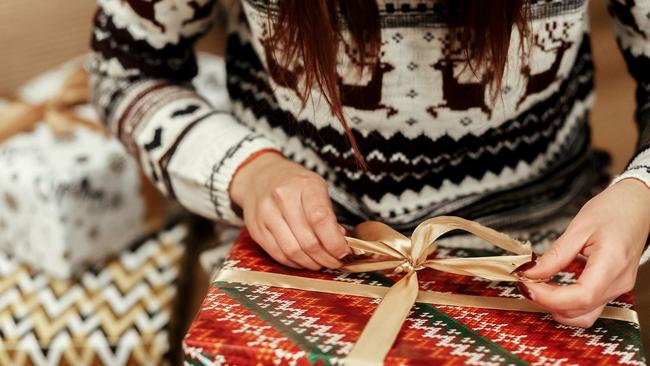
One in three say they plan to do a family Kris Kringle, and two-thirds say they like the idea of a Kris Kringle because it reduces stress and gives them time to put more thought into it.
Tribeca Financial chief executive officer Ryan Watson said Kris Kringle was a great way to strike a balance between present giving and not going overboard by buying all family members a present.
“Another reason why I really like Kris Kringle as a gift concept is that people don’t end up with a whole lot of gifts they probably didn’t want in the first place,” he said.
MONEY MAKES MONEY
The greatest gift may be one that multiplies the recipient’s money many times over, and this is where investments come into play.
Cash injected into a child or young adult’s savings account or super fund may not impress them too much now, but the power of compound interest will grow it into a substantial amount over several years.
Parents and grandparents can use online stockbrokers and platforms to buy shares in a well-known company, or invest in global names such as Apple and Netflix.
Australian Foundation Investment Company – which spreads money over many quality stocks – has an online brochure explaining how parents and grandparents can invest for children.
A new player in this area is investment start-up iTrust, where people can start a child’s account for $20, pay about 0.7 per cent in management fees and give their child exposure to international stocks through the widely-respected Magellan Global Fund.
iTrust founder Michael Ashton said parents, grandparents and friends could contribute to the same account.
“Most people tend to start with $1000 and then they’ll set up $10 per week or $50 per month recurring deposits of that nature,” he said.
As with all long-term investments, the earlier you start the better.
“Putting in $1000 when a child is born is worth four to five times as much as if you put it in when the child is seven or eight years old, because the compound interest accelerates the interest,” Mr Ashton said.
Websites such as stockspot.com.au and stake.com.au are among other ways to spend money on a Christmas gift that will continue earning money for years to come.
KNOW DEADLINES WHEN MAILING GIFTS
Posting Christmas parcels off in time can be stressful so gift givers are being encouraged to “get in early”.
Australia Post has prepared for a monster December when Australians go on an online shopping blitz and will also send off parcels in droves.
Last December, more than 40 million parcels were delivered – up 11.7 per cent on the previous year.
And the bumper day was December 17, when three million parcels were delivered, followed by 2.7 million parcels on Christmas Eve.
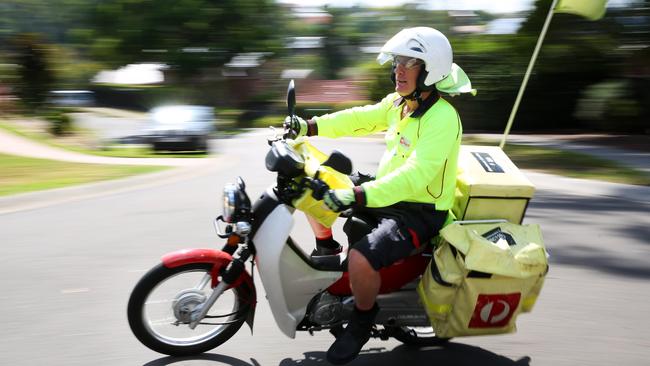
Australia Post’s executive general manager of community and consumer, Nicole Sheffield, said people should remember deliveries could be delayed if there were bushfires or unseasonal weather.
“It delays flights, freight doesn’t get out, so get in early,” she said.
“We’ll do everything we can to get everyone’s gifts to them. We know what an important time it is but some things are out of our control.”
Ms Sheffield said parcels sent through ordinary post should be sent by Wednesday, December 18, while express parcels within certain areas could be sent as late as Monday, December 23.
International parcels or letters should be sent by Tuesday, December 10 using standard delivery to ensure they arrive at their destination before December 25.
Australia Post also has 350 parcel locker locations throughout Australia that are available 24/7 and some post offices have extended trading hours.
“There is no reason why you can’t get organised and get sending,” Ms Sheffield said.
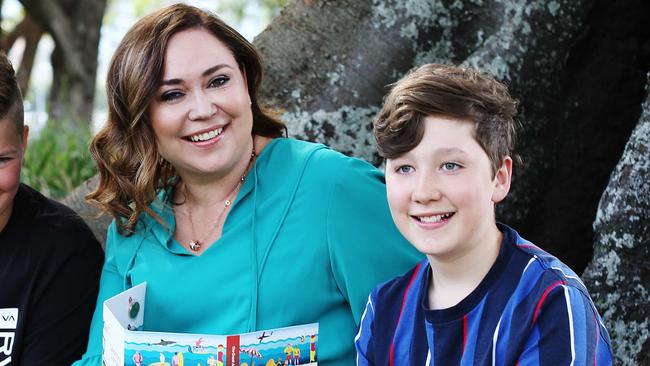
Australia Post also rolled out in October “If it packs, it posts”, which allows people to post parcels weighing under 5kg within Australia, starting from a flat postage rate of just $8.95.
There are other alternatives to posting parcels, including a new postage service rolled out by 7-Eleven, called ParcelMate. It allows customers to post parcels at more than 400
7-Eleven locations nationally using the Toll delivery service.
7-Eleven’s head of strategy and innovation, Stephen Eyears, said the new way to post goods was a result of being unable to get to a post office.
“We’ve all been caught in those situations where we are trying to pick up or send a parcel and we can’t do it within business hours,” he said.
Standard postage starts from $11 for 1kg parcels and $14 for 3kg parcels.
A locker system is used in store, from where customers can post their items.
“We are not making you weigh items – if it fits in the bag, it goes,” Mr Eyears said.
“Once it’s in the bag we will send it anywhere in Australia.”
NEW GIFT CARD RULES
Changes to gift card laws have removed some of the traps that previously caught out consumers, but Christmas shoppers must still do their homework.
On November 1 it became mandatory for most new gift cards to have a minimum three-year expiry date – a move described by consumer group Choice as a win for shoppers
that delivers them more value for money.
The rule changes also require expiry dates to be displayed prominently on cards and no fees charged after purchasing, except for some overseas transaction and booking fees.
Choice head of policy and government relations Julia Steward said shoppers should read the fine print when buying
a gift card.
“So many people leave gift cards in a drawer and forget about them,” she said.
“They’re not unlimited – they still need to be used within that three-year period.”
Some retailers – including Bunnings, Woolworths and JB Hi-Fi – have unlimited expiry dates on gift cards.
Ms Steward said gift cards were great for delivering recipients “choice and flexibility to buy what they want”.
“It’s nice to sometimes get yourself a treat that you wouldn’t buy otherwise,” she said.
But beware of upfront costs, as some gift cards charge purchasing fees up to $6.
There is no concrete data on how much Australians spend on gift cards, but it’s estimated to be up to $2.5 billion annually.
Queensland Consumers Association spokesman Ian Jarratt said people should not regard gift cards as an alternative to cash.
“They aren’t the same as cash and some still have restrictions on them,” he said.
“Even with the three-year rule they’re still risky for people to keep them for too long.
“Firstly, they may forget about them. Number two – the business may go out of business.”
Mr Jarratt said when cards weren’t fully spent many businesses would not refund the leftover balance, even if it was just $5. “That’s a sales trick to make you spend more money in the store,” he said.
People buying a gift card should ensure it was relevant to the recipient, Mr Jarratt said.
And they should check if their membership of an organisation, such as a bank or motoring group, entitled them to a discount, he said.
WHY YOU SHOULD BUY LOCALLY
Shoppers say they will be buying locally this Christmas to help push more cash into Australian retailers’ pockets, a new report has found.
Campaigns such as #buyfromthebush have helped encourage shoppers to buy from small businesses dotted all over the country.
The report by accounting software firm MYOB found 64 per cent of Australians regarded these campaigns, linked to the recent bushfires and drought, as encouraging and would result in them buying from Australian retailers.
And an overwhelming majority of 91 per cent said they preferred to shop locally.
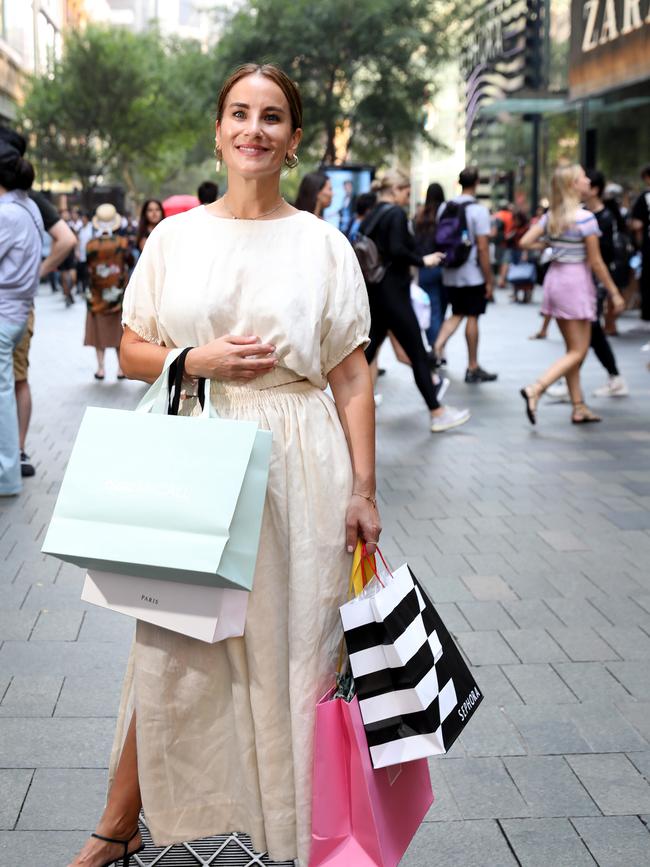
MYOB’s executive general manager of marketing and sales, Natalie Feehan, said more than 40 per cent of the Australian workforce was employed by small business.
“The fact Australians are conscious of the impact they have on the economy and they are trying to support Australians is really nice,” she said.
“They are thinking about how they can help with local stores and the local economy, especially from #buyfromthebush on Instagram or #gocountryforChristmas, which is a NSW Government initiative.”
Large parts of Australia, particularly in NSW and Queensland, have been badly hit by bushfires and drought in recent months.
Ms Feehan urged shoppers in the final weeks before Christmas to be “conscious and to be thinking about where you are buying from”.
Stylist Georgina Kar said she would finish her Christmas shopping by buying from Australian retailers.
“I always take Australian brands into consideration,” she said.
Ms Kar also said she would be “in and out of the shops pretty quickly” and would be “taking advantage of the extended trading hours”.
Westfield regional brand relationship manager Michelle Clarkson said extended trading hours would begin from Saturday across its 32 locations.
“We’ve extended trading hours from December 14 right through until Christmas Eve,” she said.
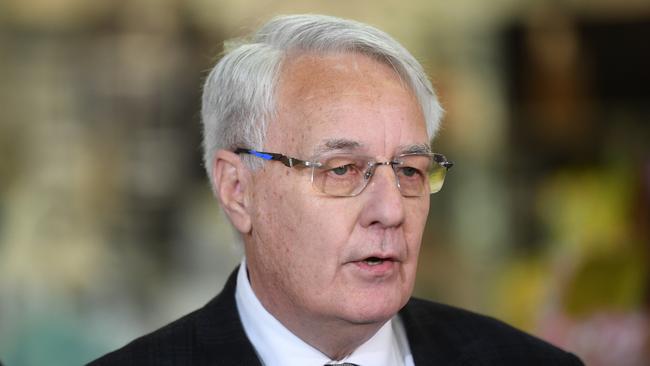
“We’ve got things like gift wrapping available, and rest and revive stations, and also taking into account fresh food collections.”
Ms Clarkson said for the final few days its centres would be open earlier for customers who had “pre-ordered their ham or fruit and seafood so it’s easier to whiz in and grab things before work”.
Australian Retailers Association executive director Russell Zimmerman urged shoppers to look for “unique products” when filling Christmas stockings.
“Look for things that aren’t necessarily in city locations, purchase them and buy locally as much as you can,” he said.
“Even if you are buying from a big retailer in Australia you are supporting jobs and growth within the Australian retail industry.”
Originally published as Your financial guide to Christmas presents for 2019
